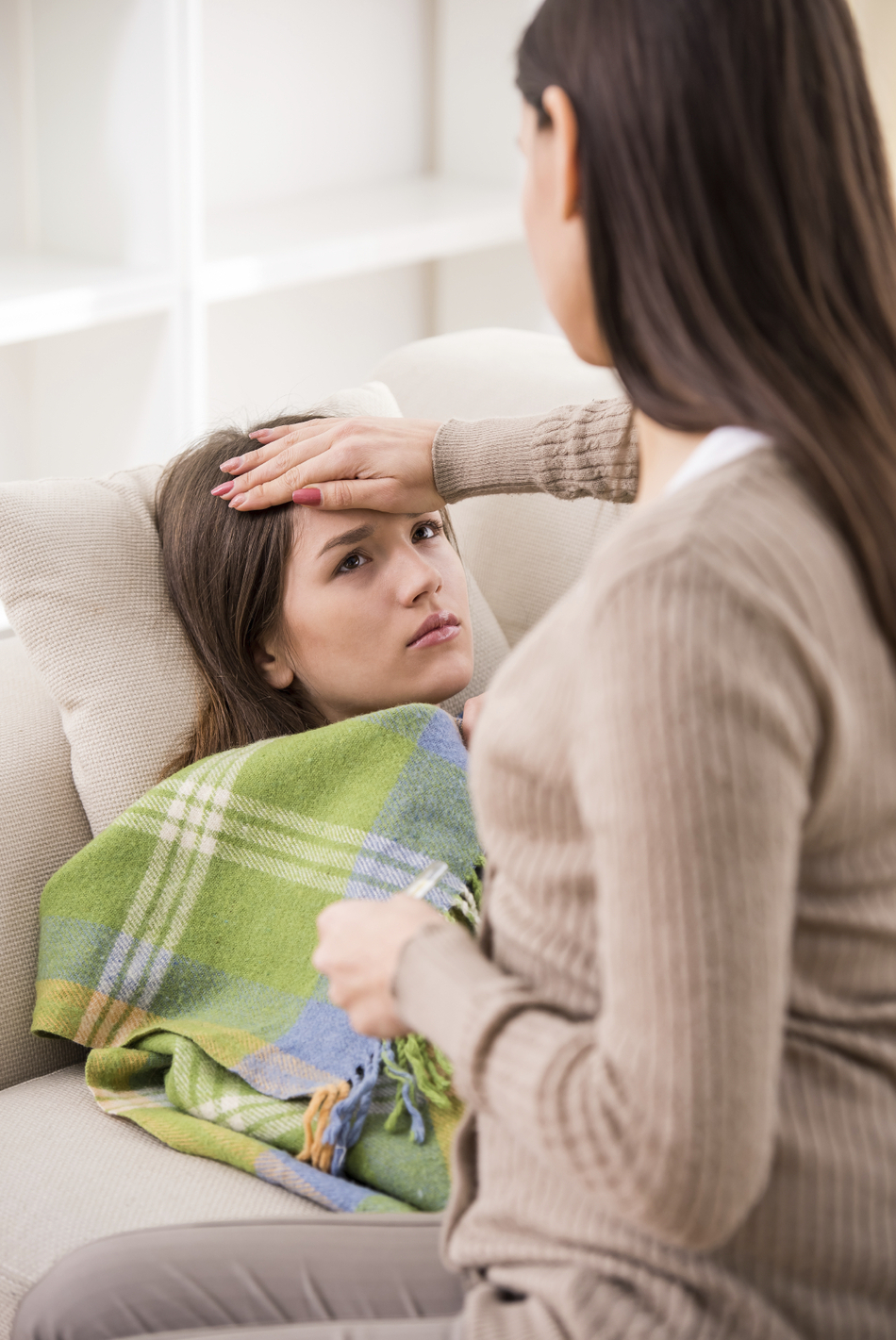Episode Transcript
Dr. Gellner: With all the illnesses going around, how do you know when to keep your child home from school? I'm Dr. Cindy Gellner and I'll give you the guidelines on today's Scope.
Announcer: Keep your kids healthy and happy. You are now entering The Healthy Kids Zone with Dr. Cindy Gellner on The Scope.
Dr. Gellner: The truth is children don't learn very well or get much out of school when they're not feeling well. Although it can be difficult to arrange emergency childcare, it truly is in the child's, and their classmates', best interest to keep them home from school when they're sick. The challenge for parents is to decide when it's a simple case of the sniffles or if it's something more serious. Children get frequent fevers. Fever for a child is a temperature over 100.4. A temperature of 101 or greater in a child older than three months is considered a fever. Even if there are no other symptoms, a fever is a sign of an infection. It means your child's body is trying to fight off some sort of illness.
Your child needs to rest in order to heal and if your child has a fever, it's likely they have something contagious. Children should not return to school until they have been fever-free without medication for 24 hours. Most fevers are caused by viruses and the child should get better on their own within a few days. But if your child has a high fever for more than four to five days, they should see their doctor. If a baby under the age of three months old has a temperature of 100.4 or higher, this is something they need to be seen by a doctor for immediately. Fevers can indicate a serious infection in newborns. To help your child with their fever at home, encourage them to drink plenty of liquids. This will help their body fight off the fever and infection.
What about mild coughs, runny noses and sore throats? Well, ideally, no child would ever go to school sick. However, children get colds so frequently, especially when they're young, that they would miss a significant amount of school if they stayed home for every runny nose and scratchy throat. If there is no fever and the child feels fairly well, school is fine. If your child has a severe sore throat, it could be strep and your child should need to see a doctor. Kids with Strep may return to school 12 to 24 hours after they start antibiotics. After that, their risk of spreading strep is less.
What if your child has a bad cough or bad cold symptoms? They need to stay home and maybe they need to see the doctor even, especially if they're having trouble breathing. It could be a severe cold or bronchitis, the flu or pneumonia. Coughs can last up to 18 days so when the cough improves and the child is feeling better, then it's back to school. You don't need to wait the full 18 days or longer for the coughs to disappear entirely.
What about vomiting? A single episode of vomiting can happen if your child is just nervous, maybe there's a test at school or something else going on, but if your child vomits more than once, it's likely to be the stomach bug. That's pretty contagious. If your child has bloody vomit or the vomit is a dark green color, they should be seen immediately by a doctor.
For diarrhea, which often goes along with the vomiting but can be by itself, unless your child has recently finished a course of antibiotics or is on antibiotics, diarrhea is the stomach bug. These viruses are easily passed from one child to the next and there's a good chance your child picked it up at school. If your child has diarrhea, they need to stay home, rest and drink plenty of fluids. If there is blood in the diarrhea, your doctor needs to know about it.
Kids seem to get all sorts of rashes as well around this time of year. If your child has eczema, this will get worse over winter and talk to your doctor about the treatments that your child needs to have to make sure their eczema is controlled over the winter. But what if your child doesn't normally have rashes and they show up with one, one day? Quite often, doctors need to see the rash in order to tell you what it is. It could be one of several viral illnesses or it could be something that's contagious like impetigo, which is a bacterial skin infection that is very contagious and requires antibiotics.
What if your child just isn't feeling up to going to school? Then you need to figure out is it something going on at school, is there a bullying situation, or is your child really sick? If your child is more than just acting tired, if you're having a hard time waking them up, or if you child's behavior is significantly different than usual, please make sure they see their doctor to figure out what is going on. If you have any questions about whether or not your child should stay home school, please call your pediatrician. They can help you figure that out.
Announcer: TheScopeRadio.com is University of Utah Health Sciences Radio. If you like what you heard, be sure to get our latest content by following us on Facebook. Just click on the Facebook icon at TheScopeRadio.com.
